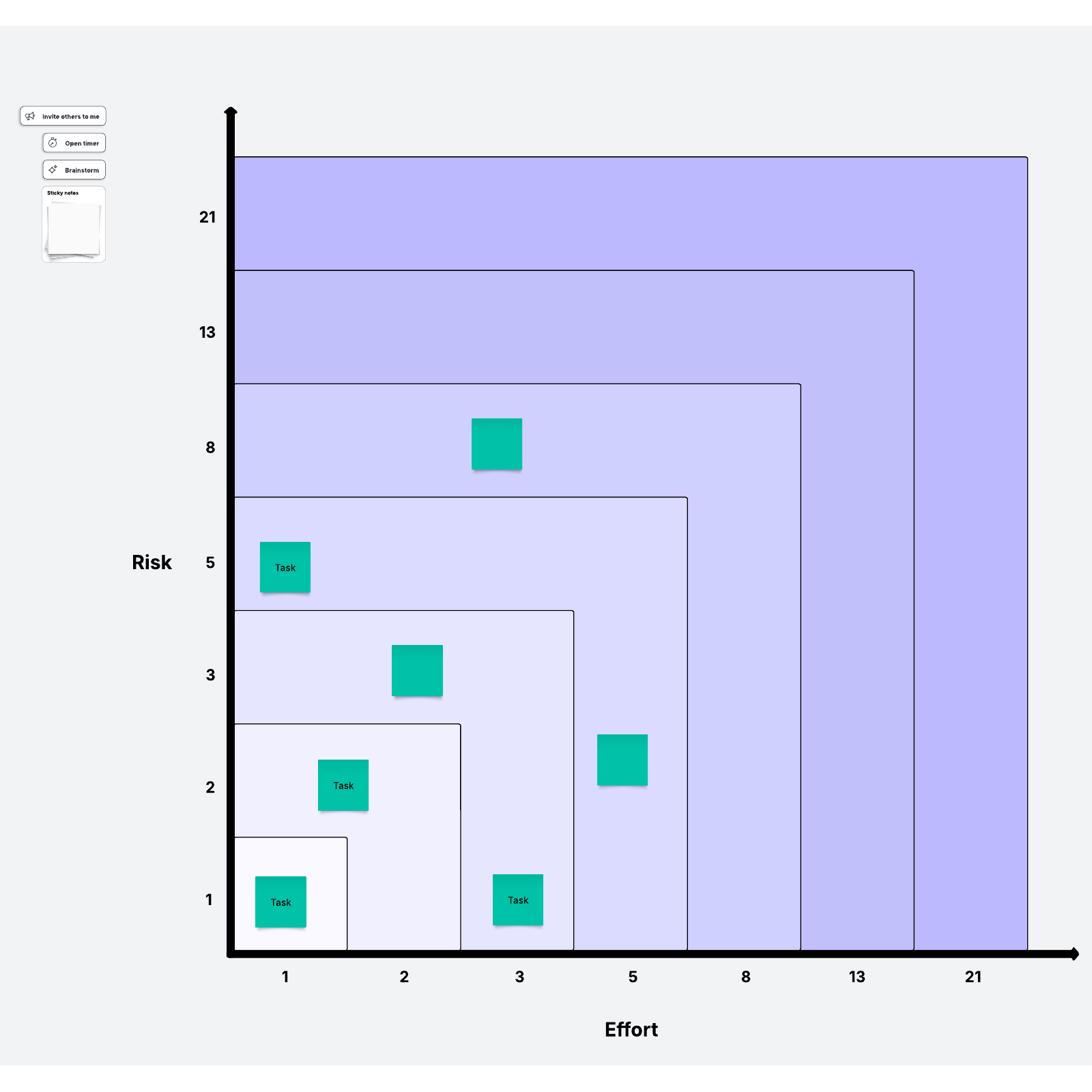Fibonacci scale
Use Lucidspark's fibonacci scale template to estimate how long tasks will take by prioritizing them on a number scale based off of risk and effort.

What is the Fibonacci scale in Agile?
Large projects are usually made up of a variety of smaller tasks that need to be completed within a certain time frame. As you plan a large project, you should have a good idea of how much time and effort these smaller tasks will require. This is especially the case if you are using an Agile project-planning framework, where you need to get different parts of the project moving in an orderly and timely manner.
You can more accurately and precisely prioritize tasks with the help of a Fibonacci Agile estimation template. Adapted from the famous Fibonacci sequence of numbers, the Fibonacci scale for Agile estimation uses a series of exponentially increasing numbers to show the risk and effort required to complete certain tasks.
Benefits of using a Fibonacci scale for Agile estimation
Using the Fibonacci scale as an estimation tool is beneficial because the large difference between the exponential numbers makes distinguishing between complex and simple tasks easier. Rather than assigning a slew of consecutive numbers to tasks, your team will be forced to justify the large differences by really considering the real risk and effort involved in each task.
A good Fibonacci scale in Agile example might be when you are planning a new product launch. Cataloging and implementing user feedback may rank much higher on the Fibonacci scale (say, at a 21) than testing the product to see if it achieves its basic functions (a task which may rank at a 5).
Tasks that rank higher will take longer to complete and require more resources, while tasks at the lower end of the scale can be accomplished more quickly and simply.
How to use Lucidspark’s collaborative Fibonacci scale template
You can quickly and easily create Fibonacci estimates for your Agile project with Lucidspark’s Fibonacci scale template. This template is especially useful if you are working with a remote or hybrid team, as everyone will be able to see your template at the same time.
Simply share your template with the relevant personnel and make sure they’re all online at the same time. You can use our helpful Zoom integration to facilitate your discussion. Then follow these steps:
- Provide an overview of a user story or task for the team. Give the team time to ask questions to better understand the task, and record key discussion points in the Note Panel. Have each team member estimate a number on the Fibonacci scale that represents the task's size.
- Then assign each team member a Collaborator Color, and have all team members post their estimation of the task size from the Fibonacci scale to the virtual whiteboard. Encourage everyone to post their number at the same time so they’re not swayed by each other's estimates.
- If there is a lot of variety in the team’s estimations, discuss why this is the case until everyone is in agreement about the relative complexity of the task.
- Once you’ve reached a consensus, add a sticky note with the task to the corresponding point in the Fibonacci sequence on the template. You can use our Tagging feature to find common themes and then group related tasks together with the Gather feature.
Laying out the parts of your project this way will enable you and your team to accurately estimate how much time the whole project will take and assign adequate resources and personnel to each task.




